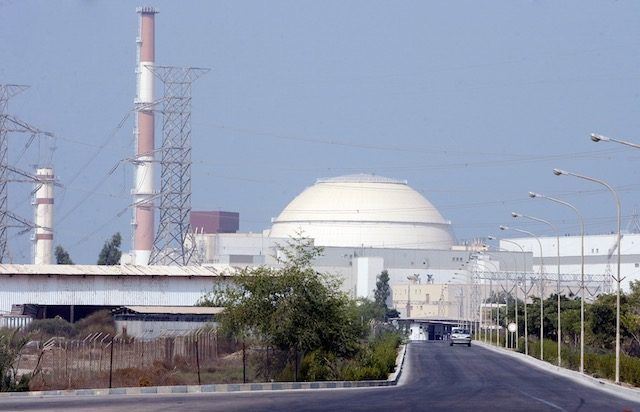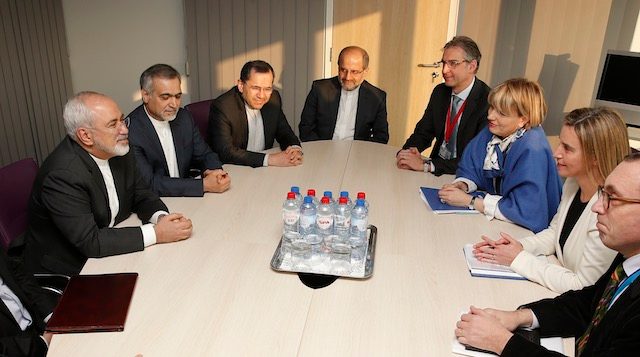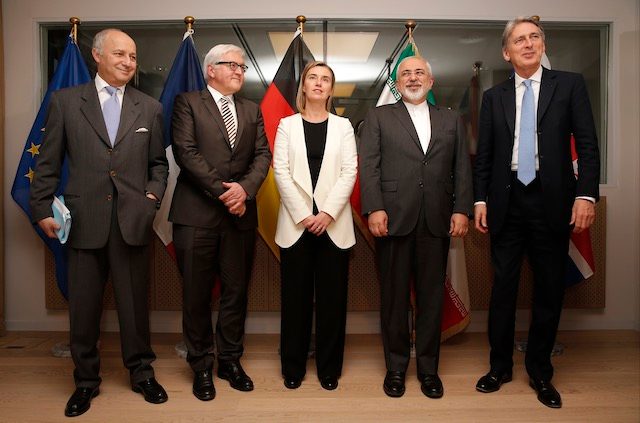SUMMARY
This is AI generated summarization, which may have errors. For context, always refer to the full article.

BRUSSELS, Belgium/LAUSANNE, Switzerland – Iran nuclear talks hung in the balance Monday, March 16, with a senior US official saying it remained unclear whether the outlines of a deal could be agreed by a March 31 deadline.
After a 5-hour meeting between US Secretary of State John Kerry and his Iranian counterpart, the official said Iran still had “very tough choices” to make.
“Iran still needs to make some very tough and necessary choices,” the official said in the Swiss city of Lausanne where the crucial round of talks was being held this week.
“We still hope to be able to get there but quite frankly we still don’t know if we will be able to,” the official said on condition of anonymity, likening the talks to a “rollercoaster”.
Iran and 6 world powers are pushing to reach by the end of the month what the official called a “political framework that addresses the major elements of a comprehensive deal”.
Such an accord would reduce in scale Iran’s nuclear program in order to ease fears that it might develop atomic weapons in exchange for sanctions relief. A full deal is due by July.
Iranian Foreign Minister Mohammad Javad Zarif later flew to Brussels for talks with the foreign ministers of France, Germany, Britain and the diplomatic chief of the EU, Federica Mogherini.
Mogherini described the meeting as “useful” in a statement late Monday, which also said that the European diplomats had stressed “their determination to work towards reaching agreement with Iran”.

Speaking ahead of the talks, French Foreign Minister Laurent Fabius said: “There have been advances but there are still important points which have not been resolved and we will see if we can move forward.”
Zarif was due to return to Lausanne and hold further talks with Kerry on Tuesday, when political directors from the other five powers – Russia, China, Britain, France and Germany – will start to arrive.
Rouhani thaw
The United States and Iran have not had diplomatic relations for 35 years but the 2013 election of President Hassan Rouhani resulted in a minor thaw and a diplomatic push to resolve the more than decade-old nuclear standoff.
Under a landmark November 2013 interim deal with the “P5+1” powers, Tehran stopped expanding its activities in return for minor sanctions relief.
Since then the parties have been pushing for a lasting accord.
But to the alarm of Iran’s foe Israel, US Republicans and Washington’s Gulf allies, the US looks to have abandoned demands that Iran dismantle all nuclear activities.
Instead it appears prepared to tolerate a small program under tight controls and potentially shipping abroad some of Iran’s nuclear material, possibly to Russia.
Critics say that in theory this still leaves Iran with the possibility to get the bomb.
Iran says its nuclear program is exclusively peaceful.
Last week 47 US Republicans took the unprecedented step of writing an open letter to Iran’s leaders warning any nuclear deal could be modified by Congress or revoked by whomever succeeds President Barack Obama, a Democrat.
The Obama administration has been trying to dissuade lawmakers from passing legislation that would force the president to submit any Iran deal to Congress for approval.
‘Long way to go’

Speaking in Egypt over the weekend, Kerry sought to ease concerns, saying that the aim is “not just to get any deal, it is to get the right deal”.
Zarif said on Sunday, March 15, that “several questions need to be discussed, those where we haven’t found a solution yet and also those where we have found solutions but where we need to discuss certain details.”
Some progress has been made towards a deal but the two sides remain far apart on several key issues.
These include the future size of Iran’s uranium enrichment capacities – which can make nuclear fuel but also the core of a bomb – the pace at which sanctions would be lifted and the accord’s duration.
“We are closer than we were but there is still a long way to go. There are areas where we have made progress and areas where we have yet to make any progress,” British Foreign Secretary Philip Hammond said Monday.
Two deadlines, in July and November, were missed but in view of the controversy in Washington – and pressure in Iran on Rouhani to deliver – extending yet again will be very tough. – Danny Kemp, Nicolas Revise and Simon Sturdee, AFP / Rappler.com
Add a comment
How does this make you feel?
There are no comments yet. Add your comment to start the conversation.